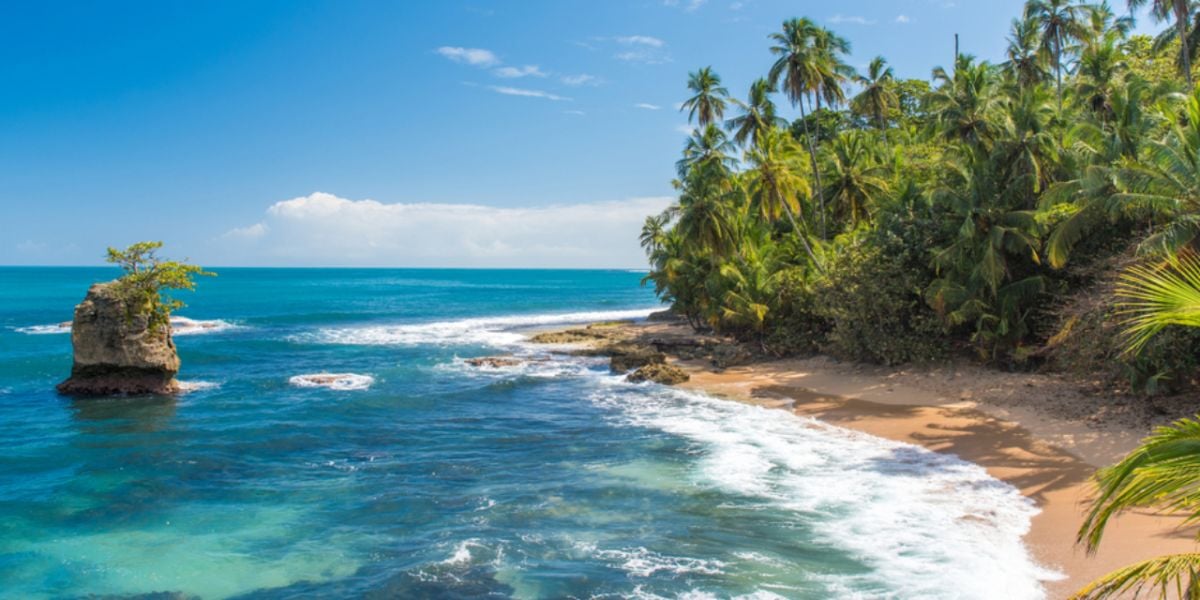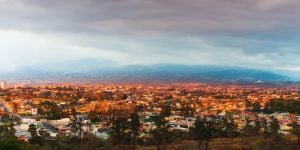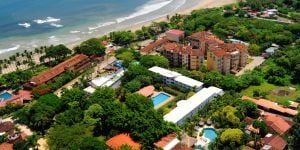
When it comes to staying in Costa Rica, there are many options, from transit and tourist visas to temporary residence permits and residency programmes. Read this article to find out more.
Requirements can vary depending on your nationality, purpose of visit and duration of stay, and these tend to be based on international agreements or treaties. You can find all the details, including application forms, on the Direccion General de Migracion y Extranjeria website, and it's advisable to enquire at your nearest Costa Rican embassy or consulate for more information. Do be aware that laws and regulations are subject to change, so it's worth checking with authorities before you travel to ensure that you have the most up-to-date information.
Types of visas
Not everyone requires a tourist visa to travel to Costa Rica. Depending on your nationality, you may be able to enter and stay in this Central American country with a valid passport for either 30 days (Australia, Belize, China, Guatemala, Honduras, Iceland, Ireland, Mexico, New Zealand, Russia, Singapore, Philippines and Venezuela) or 90 days (Argentina, Brazil, Canada, Israel, Japan, Panama, Paraguay, Uruguay, United States and most European countries, with the exception of Albania and Bosnia) without a visa. However, the exact period may be at the discretion of the immigration officer on your arrival, and you may need to provide proof of onward travel and sufficient funds to support yourself during your stay.
If you are not from one of these countries, you will need to apply for a visa at your nearest Costa Rican consulate, and submit the required documents. Unless you hold a diplomatic passport or are travelling on official government business, in which case you can apply for a six-month, multiple-entry diplomatic or official visa.
Temporary Residence Permit (TRP)
Although you can choose to exit and re-enter the country to secure another legal period of stay, it is best to seek temporary residence if you plan to live in Costa Rica for a while. Most foreigners will not qualify for citizenship, but you'll find that having a temporary residence permit (TRP) will be sufficient for living an expat lifestyle.
A student temporary residence permit allows you to stay in Costa Rica to study at an educational institution for a specific period of time. If you are pursuing a vocational career, formal education, or a degree at an accredited institution, it is advisable to apply for your student TRP at the immigration department upon enrollment, within the first 90 days of your arrival in Costa Rica.
Although many education institutions do not require you to have a student TRP (you can enter Costa Rica as a tourist and attend a short course until your permitted length of stay as a tourist expires), do be aware that if you are doing a degree programme, you will need to show proof of residence in order to complete your studies and obtain your qualification, especially if you wish to then go on to work in the country.
Once your TRP has been approved, you will need to make a US$100 deposit and take the receipt for this to the immigration department where you can collect your TRP. You will also need to renew your TRP every time you register for new classes, which will depend on how your academic programme is scheduled; and bring a certified copy of your transcripts and an up-to-date school registration letter to the immigration department, when you submit your renewal application.
Alternatively, if you are moving to Costa Rica to work, then you will need an employment temporary residence permit. An employment TRP is granted to executives, managers, foreign company representatives, clergymen, investors, teachers, correspondents, technicians or scientists who are working for a company that is accredited by the immigration department. Not only will you need to have a job offer and a statement that explains the reasons why a foreigner is uniquely qualified for the position instead of a Costa Rican, but the company offering the job must also provide documentation about the company itself. The company will also be completely responsible for your stay and your departure, and you will be required to leave Costa Rica when your contract expires.
Once your TRP has been approved, you will be required to make a US$100 deposit and take the receipt for this to the immigration department where you can collect your TRP. If you are a professional, you will also be required to then register with the relevant professional association in Costa Rica.
Do note that it usually takes between three and six months for a temporary resident permit to be processed, and you will need to obtain a temporary resident identification card (cedula de residencia) from the immigration department.
Residency programmes
There are four main residency programmes in Costa Rica ' 1. The pensionado (retiree) programme is for those who can show proof that they receive a monthly income from a qualified pension plan of at least US$1,000; 2. The rentista (legal resident) programme is for those who are not yet retired but do not need to work while living in Costa Rica, as they can prove they will receive a guaranteed non-salary income of US$2,500 per month from investments or other sources for at least a 2-year period, or have savings of at least US$60,000 (they will need to deposit a minimum of US$30,000 annually for two years into a Costa Rican bank account); 3. The inversionista (business/investor) programme for those who make a direct investment of at least US$200,000 in any type of business or in non-commercial real estate in Costa Rica; and 4. The vinculo (marriage/relation) programme for those who are married to or have a first-degree relationship (spouse, child, parent, or unmarried sibling) to a Costa Rican citizen that is willing to sponsor the applicant's residency.
Only after being part of any of these programmes for three years, can you then apply for permanent residency.
Useful links:
Expat.com ' Visas in Costa Rica Forum
Migration Department www.migracion.go.cr
Embassy of Costa Rica in US www.costarica-embassy.org
Embassy of Costa Rica in Canada www.costaricaembassy.com
Government of UK ' Travel advice www.gov.uk
We do our best to provide accurate and up to date information. However, if you have noticed any inaccuracies in this article, please let us know in the comments section below.








